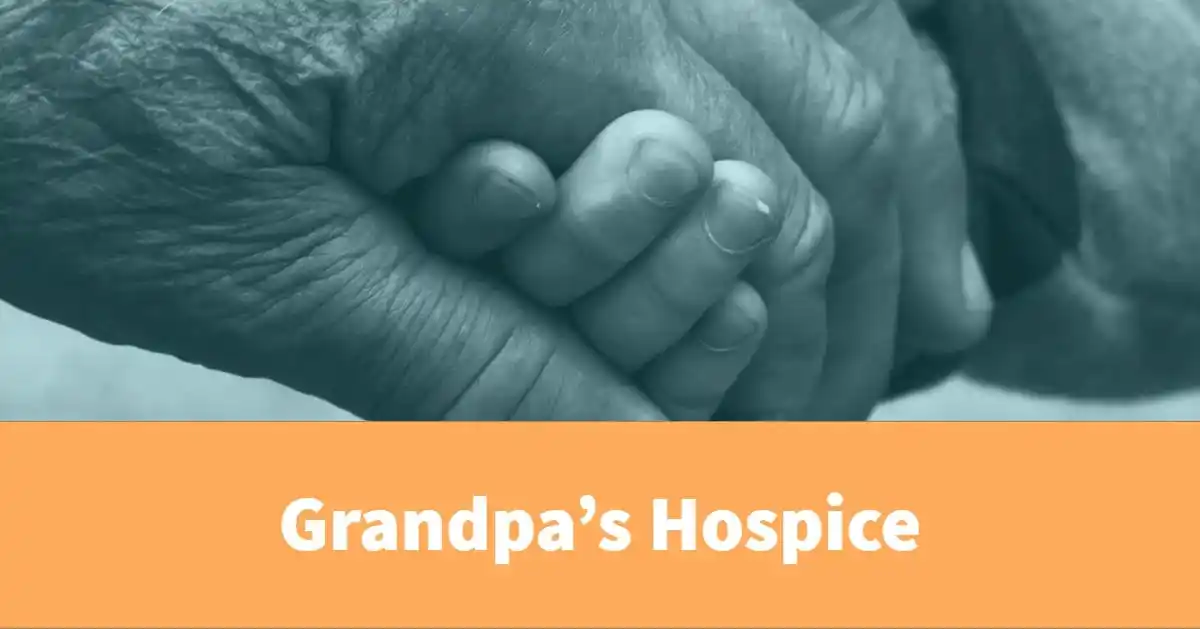Grandpa’s Hospice
He was the funniest person I knew. He was rarely ever able to finish his own jokes because he would crack himself up just thinking about the punchline. He was able to spread joy and laughter to everyone he met. Our family always joked about Grandpa making new friends everywhere he went, because he was just that personable. Even though Alzheimer’s took away his memories, he was still able to keep his sense of humor about him until the very end. Unfortunately, Grandpa lost the battle to Alzheimer’s in October of 2015, but he was lucky enough to be on service with Suncrest Hospice for the last two months of his life.
Looking back, I wish it wouldn’t have taken so long.
By this I mean, primarily, I wish the Alzheimer’s wouldn’t have taken so long. It slowly worked its havoc for over a decade. Grandpa withered away into a shell of who he used to be. The plump, jolly, spry gentleman ultimately morphed into a fragile, sallow, and confused, almost-juvenile man. He was still in there, we knew that. But I’m almost certain that Grandpa wouldn’t have wanted that life for himself. If we could have told him back at the turn of the century, “Oh yes, you’ll be alive for another 15 years. But you won’t remember most things. And you will have (seemingly) strange people changing your clothes and taking you to the bathroom. You’ll eventually stop walking, because your sight will go and you’ll fall down. A lot. Your skin will become tissue paper-thin, and you’ll have an assortment of bandages covering your body through the end of time. Eventually, you won’t even remember us…” He would have been mortified. He would’ve said, “Just take me out to the back right now and shoot me!” But, had we also told him that he would still enjoy chocolate milkshakes, still love listening to barbershop music, and the last noise his granddaughter would hear from him was a laugh… would he still have wanted to end it? Who knows. There wasn’t a real choice. Alzheimer’s is good at what it does: take and take and take until there’s nothing left, and not giving its victims a say in what is taken or when.
“To my grandmother and mom, “hospice” was a bad word.”
Secondly, I wish it wouldn’t have taken so long to for us to decide to get Grandpa onto Suncrest services. To my grandmother and mom, “hospice” was a bad word. The only hospice they were familiar with was a dingy, old nursing facility where great-grandma went, and back then they just pumped her full of morphine until she was eventually gone. No way were they going to consider putting our beloved family man through that! Luckily, though, the times have changed. And even more lucky is that Suncrest has created a hospice program that has redefined what quality care really looks like. Once the Suncrest team members came to educate our family, it was like the clouds opened up and the bright, yellow sunshine could stream in. Could Suncrest take away the Alzheimer’s and make Grandpa walk again, or remember everything he’d already lost? Of course not. But could they take away the pain and soothe him, ensure he was clean and cared for, comfortable, and that he was still treated like a human being rather than just a patient or a disease? Absolutely. He died contentedly and he died with dignity. I just wish we could have gifted him with that comfort for longer than two months. Then again, maybe that’s why it was only for two months. Maybe he was finally at ease enough to leave his weary vessel of a body and continue on his journey.
“I just wish we could have gifted him with that comfort for longer than two months.”
Isn’t it funny how life (and death) works, though?
If Grandpa hadn’t had Alzheimer’s, then we wouldn’t have been better informed about today’s hospice care. I wouldn’t have known about Suncrest, and therefore wouldn’t have ended up becoming a team member just a year and a half after his death. I wouldn’t have found that deep hole in my soul that can only be filled by being an elder care advocate. And I likely wouldn’t be educating nearly everyone I meet about death & dying, or promoting that no one should have to die a lonely and undignified death, or believing that our society can and should normalize it into something that is just as special and sacred as birth.
It’s refreshing to be surrounded by like-minded people who all want to serve people, not just help patients. I know how hard it can be during the final chapter of a loved one’s end of life. It’s too easy to become confused, sad, scared, angry, and, not least of all, overwhelmed. But know that Suncrest has a team committed to supporting families just as much as the patients themselves. We want your loved one to have the highest quality of care, and hopefully within Suncrest’s care, you too will be able to find some comfort of your own.


